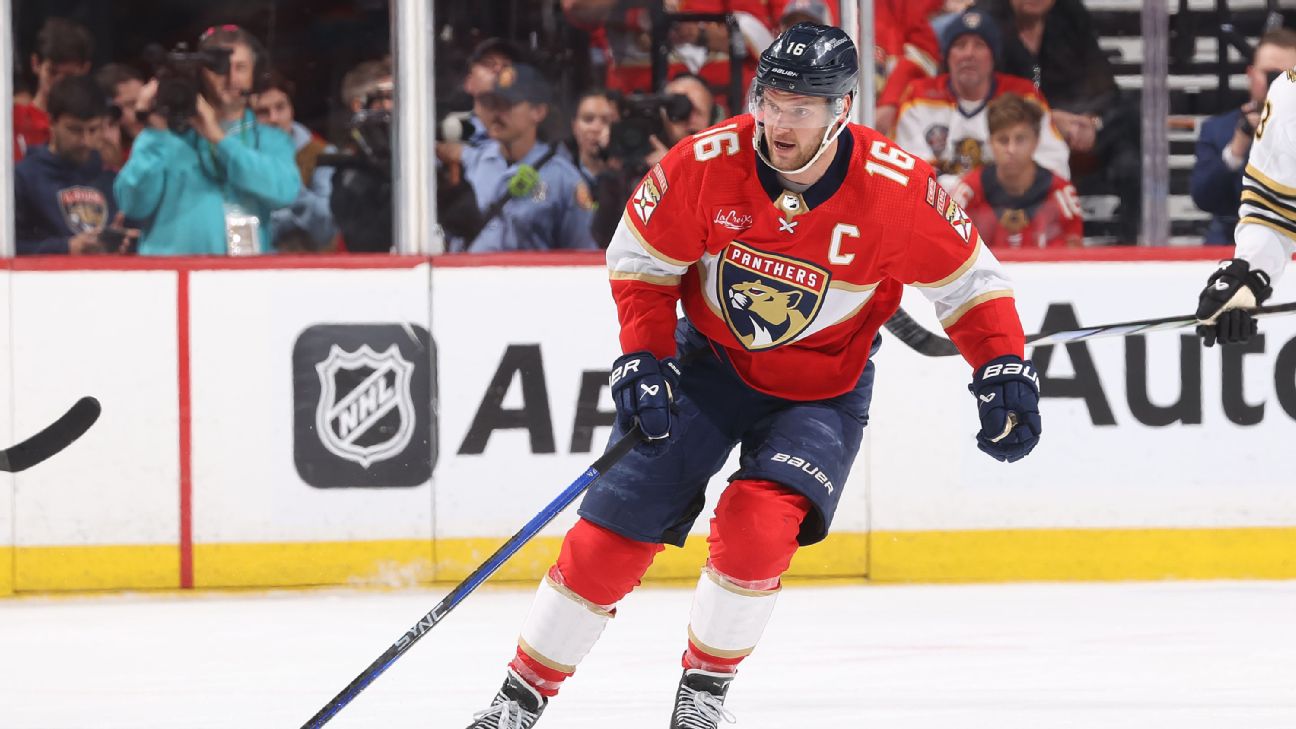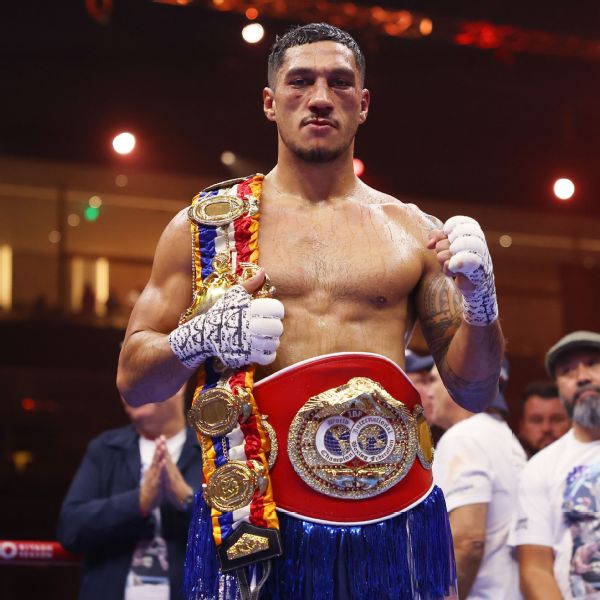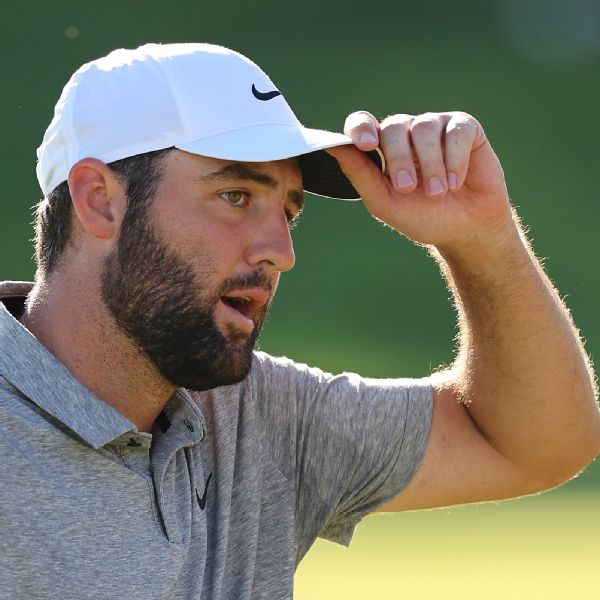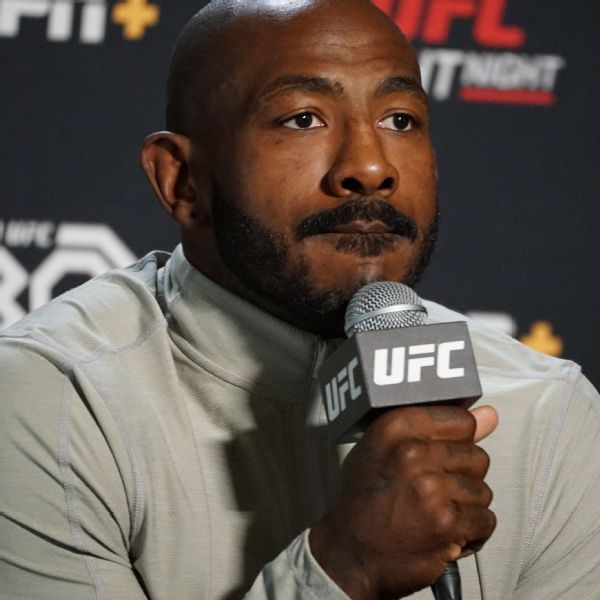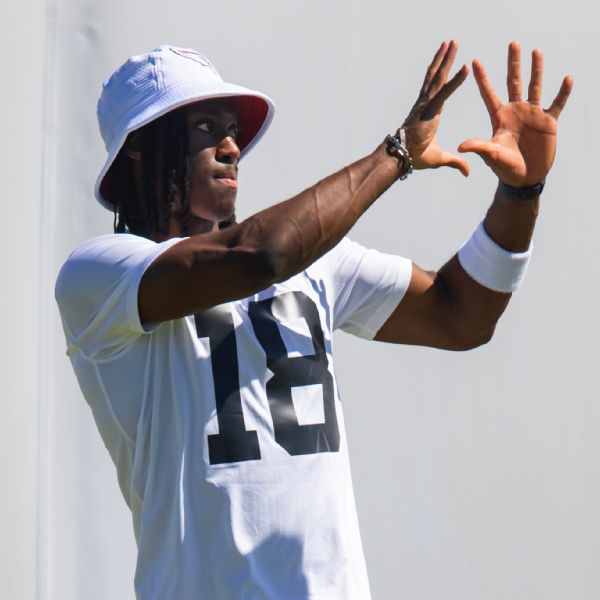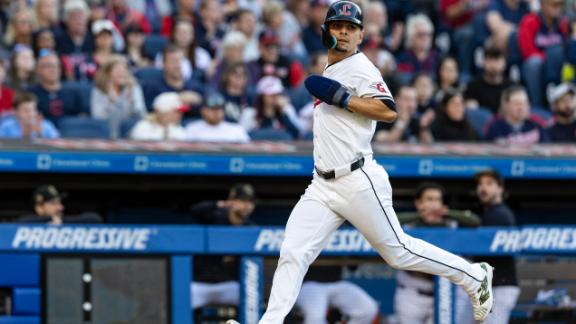![Boston Celtics [608x342]](https://a.espncdn.com/photo/2024/0506/r1329409_608x342_16-9.jpg)
After initial uncertainty Buriram again delivered an inevitable Thai League title
The other half of the NBA's conference semifinal round will begin Tuesday night, when the Cleveland Cavaliers will play in Boston against the Eastern Conference's top-seeded Celtics, while the Dallas Mavericks will bring the Red River Rivalry to the hardwood when they travel to Oklahoma City to take on the Thunder, the West's No. 1 seed.
For Cleveland, it marks a return to the conference semifinals for the first time since 2018 -- and the first time without LeBron James since 1993. Boston, meanwhile, has now reached the second round of the playoffs seven times in the past eight years and is looking to make it back to the conference finals for a sixth time during that span.
Dallas has advanced in the playoffs for a second time in three years after making it to the Western Conference finals two years ago, while Oklahoma City is in the second round for the first time since 2016 -- when it lost a classic seven-game conference finals against the 73-win Golden State Warriors.
Here's a look at three key storylines to watch in each series and which should play a large role in determining who will come out on top:
MORE: Everything to know about the playoffs | Offseason guides for every team
No. 1 Boston Celtics vs. No. 4 Cleveland Cavaliers
Jarrett Allen's health
The biggest thing to watch coming into this series is whether Cleveland's starting center will be able to play after missing the final three games of the Cavaliers' first-round victory over the Orlando Magic with a bruised rib.
Allen is a strong two-way presence in the middle for Cleveland, and with Evan Mobley, they create one of the league's best defensive units. When they shared the floor during the playoffs, the Cavaliers allowed just 0.78 points per direct drive, according to Second Spectrum tracking.
With Kristaps Porzingis likely to miss the series for Boston due to a calf strain, Cleveland's size can be a real threat in the paint -- presuming Allen sees the court.
There have been some offensive issues with Cleveland playing two non-shooting bigs together. But the more pressing issue for the Cavaliers is that if Allen isn't available, that will mean running out either Tristan Thompson or Marcus Morris Sr. at center behind Mobley. Against the offensive firepower of the Celtics, the Cavs' lack of depth inside could become a serious problem as the series progresses.
Which backcourt can control the run of play?
While the focus in Boston begins with All-Star scorers Jayson Tatum and Jaylen Brown, it will be the backcourt of Derrick White and Jrue Holiday -- one of the league's elite defensive duos -- that will help determine whether this series is competitive.
This postseason, the Celtics have a 96.6 defensive efficiency when White and Holiday both are on the court, per ESPN Stats & Information research.
They are also a tremendous matchup against Cleveland's starting backcourt of Donovan Mitchell and Darius Garland, with Holiday having the strength to take on Mitchell and White having the size and quickness to give Garland trouble.
If Cleveland is to have a chance in this series, it's going to need Mitchell to be the best player on the court and for Garland to be far more impactful than he was against Orlando in Game 7, when he scored 12 points on 3-for-13 shooting.
But if White and Holiday play their counterparts to a draw or win this matchup completely, this series could be a sweep. The first round showcased the Cavaliers' reliance on Mitchell's scoring; that won't be any different going up against the league's highest-powered offense in Boston.
Can Cleveland keep up with Boston's 3-point shooting?
One way an extreme underdog can make a series more competitive is to outshoot its opponent from the 3-point line.
The problem with taking that approach against the Celtics, though, is that they both made and attempted more 3s than any other team (by a significant amount) this season, and they finished second in the league in 3-point percentage -- one tenth of a point off the league-leading Oklahoma City Thunder.
Last summer, Cleveland signed Georges Niang and Max Strus after not having enough shooting in its first-round defeat to the New York Knicks. And while Cleveland climbed inside the top 10 in makes (seventh) and attempts (eighth) from 3-point range this season, they were last in makes, third-to-last in attempts and second-to-last in 3-point percentage (28.9%) during their series with the Magic. Meanwhile, no team made more 3s per game in the first round than Boston.
-- Tim Bontemps
No. 1 Oklahoma City Thunder vs. No. 5 Dallas Mavericks
Luka Doncic vs. Lu Dort
Dallas advanced past the first round despite its MVP candidate enduring a shooting slump and playing most of the series on a sprained right knee. Now, Doncic has to deal with Dort, a brick wall with quick feet and one of the league's premier on-ball defenders. Dort is fresh off bullying New Orleans' Brandon Ingram in the Thunder's first-round sweep, but Doncic is a much tougher challenge as a rare elite offensive creator who can match Dort's brute strength.
Doncic fared well in the two games he played against the Thunder this season, averaging 34.0 points and 13.5 assists with a 71.0 true shooting percentage. According to NBA Advanced Stats player tracking, Doncic scored 20 points on 8-of-14 shooting when Dort was his primary defender, including 4-of-8 from 3-point range.
However, Doncic's 3-point touch abandoned him in the first round, as he made only 23.9% of his long-range attempts against the LA Clippers. He especially struggled after spraining his knee during the first quarter of Game 3, going 7-of-41 on 3s in the final four games of the series. The stiffness in the knee makes it difficult for Doncic to create the kind of separation and lift that he's accustomed to getting on his step-back jumper, which is the NBA scoring leader's favorite weapon. And Doncic anticipates the knee bothering him for the rest of the Mavs' playoff run.
"I don't think it's going to get better before I get some rest," Doncic said after playing 43 minutes in the Game 6 win. "It's a lot of minutes, so maybe this summer."
Will Josh Giddey make the Mavs pay?
The Mavs basically didn't guard Giddey during Dallas' blowout win on Feb. 10, the only one of the four meetings between the teams in which Doncic and Kyrie Irving both played. The Mavs' centers were the primary defenders on Giddey, sagging far off him to clog the driving lanes and basically begging the OKC guard to fire away from the corners.
Giddey finished 3-of-14 from the floor -- 3-of-9 from 3-point range -- and the Thunder were outscored by 23 points in his 23 minutes on the court.
"We've seen it all year, so it's nothing new for us," Thunder coach Mark Daigneault said postgame of Dallas' defensive strategy. "We want to have a diversity of attacks against it, which includes the cutting, includes using him as a screener. Then he's going to shoot with confidence when he has the open shots. It was effective today for a number of reasons outside of just [Giddey]. We've seen it a lot. We've attacked it well in the past. We've got to keep learning from it and growing."
That game added fuel to the discussion about whether Giddey was a long-term fit alongside Oklahoma City's star trio of Shai Gilgeous-Alexander, Chet Holmgren and Jalen Williams. It also increased doubts about whether Giddey could play extended minutes in the playoffs.
Will that strategy work in this series? Giddey shot the ball much better after the All-Star break (36.0 on 3s) and was 8-of-13 from behind the arc in the last two games of the Thunder's sweep of the Pelicans.
How much will the Mavs miss Maxi Kleber?
The shoulder injury that will sideline Kleber, a key reserve, for the series is a major blow.
Kleber's impact goes far beyond his box score numbers (5.7 points and 2.7 rebounds per game in the first round). He's the Mavs' "secret weapon for the playoffs," one team source said. He's an outstanding defender -- the Clippers shot only 29.8% when Kelber was the primary defender, according to ESPN Stats & Information -- who shot 45.8% on 3s over his past two postseasons and provides coach Jason Kidd with lineup versatility.
The Mavs no longer have an attractive small-ball lineup without Kleber, who played center in a lineup that could switch everything defensively and play a five-out offensive style. That would have been a valuable option to mitigate Thunder rookie Chet Holmgren's presence as a rim-protector.
Kleber was also an essential component to the Mavs' supersized lineups, which could have been useful against an Oklahoma City squad that ranked 28th in the league in rebounding percentage this season. That lineup played a critical role in the Mavs' rout of the Clippers in a pivotal Game 5, when Dallas outscored LA by 17 points in 19 minutes when Kleber was paired alongside either Daniel Gafford or Dereck Lively II.
-- Tim MacMahon








